Top 7 Reasons You Should Try Lion’s Mane Mushrooms
This tasty medicinal mushroom can be your answer to multiple health-related issues.
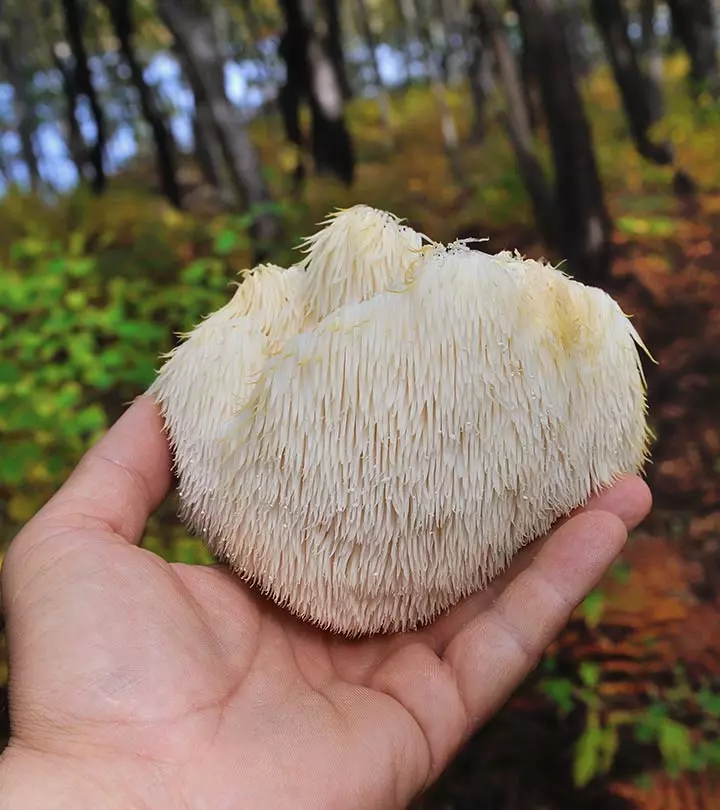
Image: Shutterstock
Lion’s mane mushrooms got their name from their majestic shaggy white spines that look like a lion’s mane. These mushrooms are a delicious addition to savory dishes and can also be used as a powdered supplement in drinks. The mushrooms are meaty, juicy, and loaded with nutrients and bioactive compounds. Hence, consuming them may help boost brain function and memory and help protect nerve cells from damage. Besides, they also contain powerful antioxidants that help reduce inflammation. In this article, you will learn about the many other benefits of lion’s mane mushrooms, their potential side effects, and certain easy recipes you can try at home. Keep reading.

 Know Your Ingredient: Lion’s Mane Mushroom
Know Your Ingredient: Lion’s Mane MushroomWhat Is It?
A type of edible mushroom that belongs to the Hericiaceae family of fungi.
What Are Its Benefits?
It may manage diabetes, combat inflammation, increase mental health, and prevent ulcers.
Who Can Consume It?
Considered safe for consumption in general.
How Often?
Regularly, but in moderation.
Caution
It may not be suitable for diabetic individuals and cause an allergic reaction in some people.
In This Article
What Is Lion’s Mane Mushroom?
, Ph.D., says, “Lion’s mane is a type of medicinal mushroom that is native to North America, Europe, and Asia. It is generally identified by its long dangling spines that grow in a single clump resembling a lion’s mane.”
These mushrooms have been part of various diets for many years. Dr. Mason Bresett, ND, says, “Lion’s mane mushroom’s culinary and medicinal uses can be traced back to China, Japan, and India over thousands of years, and have been known by various names — from ‘mountain monk mushroom’ in Japan to ‘bearded tooth’ and ‘pom-pom’ mushroom in North America.” These mushrooms are considered to be a great addition to the group of adaptogens that promote brain development.
Nutritionist Lisa Richards explains, “Adaptogens are drugs, typically supplements and other natural substances that are used to enhance cognitive function. They are marketed stating that they improve mental clarity, motivation, memory, focus, and overall mood.”
Researchers have linked some of the bioactive compounds in lion’s mane mushrooms to neuron regeneration and protection. But what nutrients do these contain? Read on to learn about the nutritional profile of the lion’s mane mushroom.
Key Takeaways
- Lion’s mane mushroom is an adaptogen that helps promote brain and brain cell development.
- It may help improve memory, learning, brain cell growth and alleviate depression.
- People with diabetes should eat it with caution as it might have a slight anti-hyperglycemic effect.
Nutritional Information Of Lion’s Mane Mushroom
A 100 g serving of lion’s mane mushroom contains (1):
| Calories | 43 kcal |
|---|---|
| Protein | 2.5 g |
| Carbohydrates | 7.59 g |
| Total lipids (Fat) | 0.26 g |
| Sodium | 0 mg |
| Potassium | 443 mg |
| Calcium | |
| Iron | 0.69 mg |
| Magnesium | 11.7 mg |
| Phosphorus | 94 mg |
| Zinc | 0.74 mg |
| Copper | 0.17 mg |
| Thiamin | 0.146 mg |
| Riboflavin | 0.363 mg |
Dr. Bresett says, “Lion’s mane is a solid non-animal source of amino acids. It also has antioxidants like ergothioneine, vitamins, trace minerals, and healthy fibers for digestion.”
Besides, these mushrooms contain highly beneficial phytosterolsi Plant-based compounds that help regulate blood cholesterol levels and reduce the risk of cardiovascular diseases. and are considered natural nootropics. Nootropics are smart drugs or substances that increase cognitive properties like memory, motivation, concentration, and attention (1), (2).
Nutritionist Heather Hanks says, “Lion’s mane is often used today as a nootropic due to its cognitive-enhancing abilities.” The possibility of using nootropics to treat ADHD, Alzheimer’s, dementia, and other related disorders makes them highly regarded.
She adds, “There are currently no studies to show that lion’s mane can treat ADHD. However, it has other proven benefits that may help relieve many underlying symptoms of ADHD, such as alleviating depression and improving memory, learning, and brain cell growth.”
Dr, LeGrand, a doctor and a YouTuber, was feeling low and wanted to improve cognitive functions. He took upon a 30-day challenge of consuming the lion’s mane. Encouraged by a surprising boost in energy during the first week, coupled with improved memory recall by the second week, he increased the dosage to four grams daily in the third week, and he shared the results in his video, “I started to have this clarity of mind throughout the day, and this made a big difference for my energy and focus and clarity. (i).”
Learning the nutritional value of lion’s mane mushroom is not enough. To use it, we also have to learn the forms in which it is available to enjoy its benefits. The following section provides details.
Forms Of Lion’s Mane Mushroom For Usage
- Fresh Mushroom: You can find fresh lion’s mane mushroom that can be used in cooking.
- Dried Mushroom: It is also available in dried form, which has a longer shelf life.
- Powdered Form: It is processed into a powdered extract which can be added to smoothies, beverages, or other recipes.
- Capsules or Tablets: Lion’s mane mushroom in the form of capsules or tablets provides a convenient way to take it as a dietary supplement.
- Tinctures: Lion’s mane tinctures are liquid extracts, often alcohol-based, that can be added to beverages.
- Topical Products: It is available for topical use in the form of creams or ointments.
Lion’s mane mushrooms not only boost brain health but also protect the stomach and help fight cancer. Let us learn more about these benefits in the next section.
Potential Health Benefits Of Lion’s Mane Mushrooms
1. May Help Manage Diabetes

Lion’s mane mushrooms contain a compound called HEP-C that helps lower blood sugar levels and enhance glucose tolerance. Hence, the compound shows promise as an anti-diabetic ingredient (3).
A recent study on rats revealed that lion’s mane mushroom extract contains bioactive compounds like D-threitol, D-arabinitol, and palmitic acid. Rats that consumed this extract showed lower sugar levels than those that didn’t (4). Although research on animal models is promising, further study is required to understand the effects on humans fully.
2. May Reduce Inflammation
Lion’s mane mushrooms show potent anti-inflammatory and antioxidant activity.
Studies suggest that they contain various beneficial bioactive compounds that protect neurons and reduce inflammation. Furthermore, they may help reduce inflammation associated with obesity in the body’s primary energy storage area — the adipose tissue (5), (6), (7). However, more studies are warranted to understand this benefit of lion’s mane mushrooms.
3. May Prevent The Onset Of Dementia

The lion’s mane mushrooms contain hericenones and erinacines, the beneficial bioactive compounds that promote cognitive function by affecting brain neural networks. Besides, the dilinoleoyl-phosphatidylethanolamine (DLPE – a phospholipid) isolated from lion’s mane mushrooms was shown to protect against neuronal cell death and prevent the progression of dementia (8).
 Trivia
TriviaConsuming these mushrooms has been proven to be a safe and easy way to prevent and manage dementia (9).
4. May Boost Mental Health
Apart from hericenones and erinacines, lion’s mane mushrooms also contain other compounds known to benefit the brain.
Eating them may help reduce depression symptoms by promoting and regulating neuronal growth and reducing inflammation in the brain (10).
A study found that women who consumed cookies supplemented with lion’s mane mushrooms reported lower levels of irritability, anxiety, and depression. However, research on their antidepressant effects has only recently begun, and further research is needed (11).
5. May Protect Against Ulcers
Lion’s mane mushrooms may protect the stomach from oxidative stress, inflammation, and ulcers. They may also protect against ulcers caused by inflammatory bowel disease (IBD).
In a study, their extract was found to reduce ulcers in rats and prevent damage to the stomach’s lining due to antioxidant loss. Besides, another study revealed that EP-1, a compound present in these mushrooms, had protected against the ulcers of IBD by promoting antioxidant activity (12), (13).
6. May Have Anticancer Properties
Lion’s mane mushroom extracts and its compounds like peptides and cerebroside E have the potential to inhibit the growth of cancer cells.
Several studies have shown the activity of these extracts against lung, liver, colon, stomach, and intestinal cancers. Some peptides have also displayed antioxidant properties and inhibited the growth of lung cancer cells. Furthermore, cerebroside E was found to prevent the formation of new blood vessels in tumors, thereby limiting their growth (14), (15), (16), (17).
7. Fight Against Infections

Lion’s mane mushroom extracts can inhibit the growth of food-borne pathogenic bacteria like Staphylococcus aureus, Salmonella enteritidis, Vibrio parahaemolyticus, and Escherichia coli. They are also effective against Campylobacter jejuni, a common cause of intestinal infections in children that causes diarrhea (18), (19).
Dr. Bresett says, “In general, people seeking mental energy, focus, and memory retention may be supported by adding this mushroom extract to their diet.” So, why wait – let us get started with lion’s mane mushrooms.
How To Add Lion’s Mane Mushrooms To Your Diet
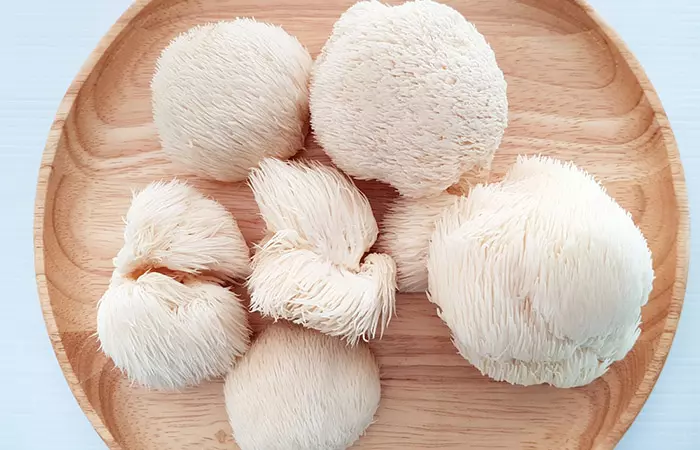
Chef Kaitlin says, “Lion’s mane mushroom is safe to eat and not a psychedelic (psychoactive substance) as some may believe. You can eat them raw, cooked, dry, or steeped. A lot of people add this to their coffee or use it to replace coffee in a ground form.” You can also use Lion’s mane mushroom tea powder to make a sweet and delicious tea.
Richards says, “Some coffee manufacturers have started adding a variety of mushrooms to their coffee formulations as a nootropic enhancer.”
Chef Kaitlin says, “I like to add them in soups. I cook them to make it easier for the body to absorb the nutrients rather than having it raw. They are used a lot in vegan crab cakes. I have made things from lion’s mane mushroom tacos to vegan ramen and lion’s mane fried chicken.”
“It is easy to add lion’s mane to your diet. Stir lion’s mane powder in your morning coffee, tea, or hot chocolate, or add it to a smoothie. It’s also a smart addition to all kinds of soups for a nutritious lunch or dinner and can be the star ingredient in a raw vegan chocolate cake,” says Dr. Bresett.
 Quick Tip
Quick TipWondering how to add this health-promoting lion’s mane mushroom to your diet? Here are a few simple and delicious recipes to start with. Keep reading.
Popular Recipes Using Lion’s Mane Mushrooms
1. Garlic Lion’s Mane Mushroom Sandwich
This is a hearty vegan sandwich full of juicy lion’s mane mushrooms. It is just the thing for lunch.
What You Need
- 250 g of lion’s mane mushrooms
- 2 tablespoons of olive oil
- ¼ teaspoon of garlic powder
- ½ tablespoon of soy sauce
- 2 slices of bread (toasted)
- 1 tablespoon of mayonnaise
- Salt, as needed
How To Prepare
- Slice the mushrooms after removing their bottoms.
- Heat the olive oil in a skillet. Cook the mushrooms (stirring often) for 2 minutes until they have browned.
- Let the mushrooms brown on the other side for about a minute.
- Add garlic powder, soy sauce, and salt.
- Taste and add salt as needed.
- Toast the bread slices and spread them with mayonnaise.
- Add mushrooms to this sandwich.
2. Lion’s Mane Mushroom Crabs
These meaty crab cakes taste so authentic you might not realize they are vegetarian!
What You Need
- 500 g of lion’s mane mushrooms (finely chopped)
- 1 cup of onion (finely diced)
- 6 cloves of garlic (diced)
- ¼ cup of red sweet peppers (diced)
- ¾ cup of bread crumbs
- 2 chicken eggs (beaten)
- 3 tablespoons of parsley (diced)
- 2 tablespoons of butter (softened)
- 1 tablespoon of cayenne pepper
- Salt, as needed
How To Prepare
- Cook the diced lion’s mane, onions, and sweet peppers in a lightly oiled skillet for 15 minutes on low heat (stirring frequently).
- Add garlic and continue to cook for 5 minutes more until the ingredients are lightly browned.
- Remove from heat and let cool for 15 to 20 minutes in a bowl.
- Add all other ingredients to the bowl and mash until thoroughly combined.
- Roll the batter into cakes about 2 inches in diameter and set aside for 5 minutes.
- Cook the crab cake in a buttered skillet on low heat. Serve with a sauce of your choice.
3. Lion’s Mane Mushroom With Alfredo Sauce
Juicy meaty mushrooms and creamy white sauce pasta are a winning combo for any meal.
What You Need
- 250 g of lion’s mane mushroom (chopped)
- 300 g of pasta
- ¼ cup of butter
- 2 cups of heavy cream
- ½ cup of Parmesan cheese
- ¾ cup of mozzarella cheese
- 2 cloves of garlic
- 2 tablespoons of oil
- Salt, as needed
- Black pepper (freshly ground), as needed
How To Prepare
- Cook the pasta. Set aside.
- Cook lion’s mane mushrooms in butter over low heat for a long time. Set aside.
- Add the butter and oil to a pan over low heat. Add cream, crushed garlic, salt, and pepper. Stir often as you simmer.
- Stir in Parmesan and simmer for 10 minutes until smooth and thick. Add the mozzarella and continue stirring until smooth.
- Serve over pasta with lion’s mane mushrooms.
Get inspired by these recipes and make your own. Lion’s mane mushrooms are extremely versatile when it comes to recipes.
Dr. Bresett says, “It is usually enjoyed via hot water extraction or cooked and is frequently used as a meat replacement in certain parts of the world. Lion’s mane extracts are used in a wide variety of health supplements.”
However, these supplements might not be for everyone. Here’s why.
Possible Side Effects And Allergies Of Lion’s Mane Mushrooms

Dr. Strause says, “Overall, lion’s mane is safe to eat without restrictions or interactions. However, people with diabetes may want to watch their blood sugar since there is some data to suggest it might have a slight anti-hyperglycemic effecti The result of consuming foods that help lower blood glucose levels. It counters the effects of hyperglycemia (high blood sugar). . This may be helpful for people who struggle with high blood glucose but may also be a risk for those with low blood sugar.”
Hence, people with low blood sugar should be cautious when consuming this mushroom.
“Studies do not suggest that lion’s mane is generally a risk for those with allergies; however, allergies have been reported. Since it is a type of fungus, the experienced allergic reactions will be similar to most other mushroom allergies with minor symptoms such as swelling of the lips, mouth, and airways as well as difficulty breathing, skin rashes or hives,” adds Dr. Strause. Consult your doctor before consuming lion’s mane if you are allergic to mushrooms.
Infographic: 5 Health Benefits Of Lion’s Mane Mushroom
This weird-looking mushroom might not have seemed like much, but now that you have read through its benefits, you probably can’t wait to share this must-have ingredient with your friends. Check out the infographic below that highlights 5 top health benefits. Save and share it with your friends to get them on board the lion’s mane train!
Some thing wrong with infographic shortcode. please verify shortcode syntaxFinal Words
Mushrooms are rich, flavorful, and delicious. Additionally, the uncountable mushroom benefits make it a healthy food choice. Lion’s mane is one of a kind among the various types of mushrooms. The rich benefits they impart to the brain make them highly regarded as adaptogens and nootropics. They improve memory, protect neurons, and reduce inflammation besides reducing the risk of gastric ulcers. Moreover, their blood sugar-lowering ability helps manage diabetes. They could contribute to the overall immunity of the body effectively. However, people with low blood sugar and those with mushroom allergies should be cautious while consuming them.
Frequently Asked Questions
Can lion’s mane be taken with other supplements?
In general, Lion’s Mane mushrooms can be taken with other supplements. However, it is important to exercise caution when taking them with drugs or supplements that impact blood pressure, blood sugar, or immune system function. Before taking Lion’s Mane with other supplements, always get medical advice. This is especially important if you are taking medication or already have health issues.
What is the best way to consume lion’s mane for maximum benefits?
Lion’s Mane mushrooms are best used as a supplement, such as powder or capsules, which offer a steady supply of active ingredients. Additionally, you can incorporate Lion’s Mane powder into smoothies or other drinks, but for maximum effectiveness, make sure the products you use contain the fruiting body.
Can you take a lion’s mane daily?
According to Kelsey Lorencz, RDN, “You can take lion’s mane daily with minimal risk of side effects, as long as you are not allergic to mushrooms.” However, it is best to consult your healthcare provider before taking any new dietary supplement.
Is 500 mg of lion’s mane enough?
According to Kelsey Lorencz, RDN, “doses between 500 mg and 3000 mg of lion’s mane per day are beneficial to cognition, mood, and inflammation.”
Can a lion’s mane cause weight gain?
No. According to one rat study, the administration of ethanol extract from lion’s mane showed a significant decrease in weight gain (24). However, more studies are warranted to understand this benefit of lion’s mane.
Does lion’s mane increase testosterone?
Anecdotal evidence suggests that lion’s mane may increase testosterone levels. However, limited data is available in this regard.
Is lion’s mane hallucinogenic?
No. Lion’s mane is not hallucinogenici Substances that alter a person’s perception of reality and potentially cause blurred vision, dizziness, loss of appetite, or tremors. .
Some thing wrong with illustration image shortcode. please verify shortcode syntaxUnlock the power of Lion’s Mane mushrooms to improve your health! Watch this video to discover the amazing benefits of this superfood and how it can help boost your brain power.
Personal Experience: Source
StyleCraze's articles are interwoven with authentic personal narratives that provide depth and resonance to our content. Below are the sources of the personal accounts referenced in this article.
i. I took lion’s mane for 30 days, here’s what happenedhttps://www.youtube.com/watch?v=iPX2uh5xYn8
References
Articles on StyleCraze are backed by verified information from peer-reviewed and academic research papers, reputed organizations, research institutions, and medical associations to ensure accuracy and relevance. Read our editorial policy to learn more.
- Mushroom. lion’s mane
https://fdc.nal.usda.gov/fdc-app.html#/food-details/1999626/nutrients - Establishing Natural Nootropics: Recent Molecular Enhancement Influenced by Natural Nootropic
https://www.ncbi.nlm.nih.gov/pmc/articles/PMC5021479/ - Hypoglycemic benefit and potential mechanism of a polysaccharide from Hericium erinaceus in streptozotoxin-induced diabetic rats
https://www.sciencedirect.com/science/article/abs/pii/S1359511319311183 - Hypoglycemic effect of extract of Hericium erinaceus
https://onlinelibrary.wiley.com/doi/abs/10.1002/jsfa.1928 - Evaluation of the Antioxidant Activity and Anti-Inflammatory Effect of Hericium erinaceus Water Extracts
https://koreascience.kr/article/JAKO201317642690033.page - Lion’s Mane Mushroom Hericium erinaceus (Bull.: Fr.) Pers. Suppresses H2O2-Induced Oxidative Damage and LPS-Induced Inflammation in HT22 Hippocampal Neurons and BV2 Microglia
https://www.mdpi.com/2076-3921/8/8/261 - The Anti-Inflammatory Effects of Lion\’s Mane Culinary-Medicinal Mushroom Hericium erinaceus (Higher Basidiomycetes) in a Coculture System of 3T3-L1 Adipocytes and RAW264 Macrophages
https://www.dl.begellhouse.com/journals/708ae68d64b17c52 - Compounds for dementia from Hericium erinaceum
https://clarivate.com/clarivate-is-no-longer-hosting-journals-on-the-web-publications/ - Improvement of cognitive functions by oral intake of Hericium erinaceus
https://www.jstage.jst.go.jp/article/biomedres/40/4/40_125/_article/-char/ja/ - Therapeutic Potential of Hericium erinaceus for Depressive Disorder
https://www.mdpi.com/1422-0067/21/1/163 - Reduction of depression and anxiety by 4 weeks Hericium erinaceus intake
https://www.jstage.jst.go.jp/article/biomedres/31/4/31_4_231/_article/-char/ja/ - Gastroprotective Effects of Lion’s Mane Mushroom Hericium erinaceus (Bull.:Fr.) Pers. (Aphyllophoromycetideae) Extract against Ethanol-Induced Ulcer in Rats
https://www.hindawi.com/journals/ecam/2013/492976/ - A polysaccharide from cultured mycelium of Hericium erinaceus relieves ulcerative colitis by counteracting oxidative stress and improving mitochondrial function
https://www.sciencedirect.com/science/article/abs/pii/S0141813018355399 - Hericium erinaceus (Lion’s Mane) Mushroom Extracts Inhibit Metastasis of Cancer Cells to the Lung in CT-26 Colon Cancer-Tansplanted Mice
https://pubs.acs.org/doi/abs/10.1021/jf400916c - Anticancer potential of Hericium erinaceus extracts against human gastrointestinal cancers
https://www.sciencedirect.com/science/article/abs/pii/S0378874114001809 - Peptides obtained from edible mushrooms: Hericium erinaceus offers the ability to scavenge free radicals and induce apoptosis in lung cancer cells in humans
https://pubs.rsc.org/en/content/articlelanding/2025/fo/d0fo00227e/unauth - A new cerebroside from the fruiting bodies of Hericium erinaceus and its applicability to cancer treatment
https://www.sciencedirect.com/science/article/abs/pii/S0960894X15302018 - Inhibitory activity against biological activities and antimicrobial activity against pathogenic bacteria of extracts from Hericium erinaceus
https://koreascience.kr/article/JAKO201919033492446.page - Characterization of Antimicrobial Compound Produced from Hericium erinaceus Combating Campylobacter jejuni NCTC11168
https://www.ingentaconnect.com/content/ben/aia/2025/00000019/00000002/art00011 - Erinacine A-Enriched Hericium erinaceus Mycelium Produces Antidepressant-Like Effects through Modulating
BDNF/PI3K/Akt/GSK-3β Signaling in Mice https://www.mdpi.com/1422-0067/19/2/341 - Therapeutic Potential of Hericium erinaceus for Depressive Disorder
https://www.ncbi.nlm.nih.gov/labs/pmc/articles/PMC6982118/ - Hericium erinaceus Improves Recognition Memory and Induces Hippocampal and Cerebellar Neurogenesis in Frail Mice during Aging
https://www.mdpi.com/2072-6643/11/4/715 - Therapeutic Potential of Hericium erinaceus for Depressive Disorder
https://www.ncbi.nlm.nih.gov/labs/pmc/articles/PMC6982118/ - Yamabushitake mushroom (Hericium erinaceus) improved lipid metabolism in mice fed a high-fat diet
https://pubmed.ncbi.nlm.nih.gov/20622452/ - Protective effects of Hericium erinaceus mycelium and its isolated erinacine A against ischemia-injury-induced neuronal cell death via the inhibition of iNOS/p38 MAPK and nitrotyrosine
https://pubmed.ncbi.nlm.nih.gov/25167134/
Read full bio of Jesse Feder
Read full bio of Payal Karnik
Read full bio of Ravi Teja Tadimalla
Read full bio of Aparna Mallampalli






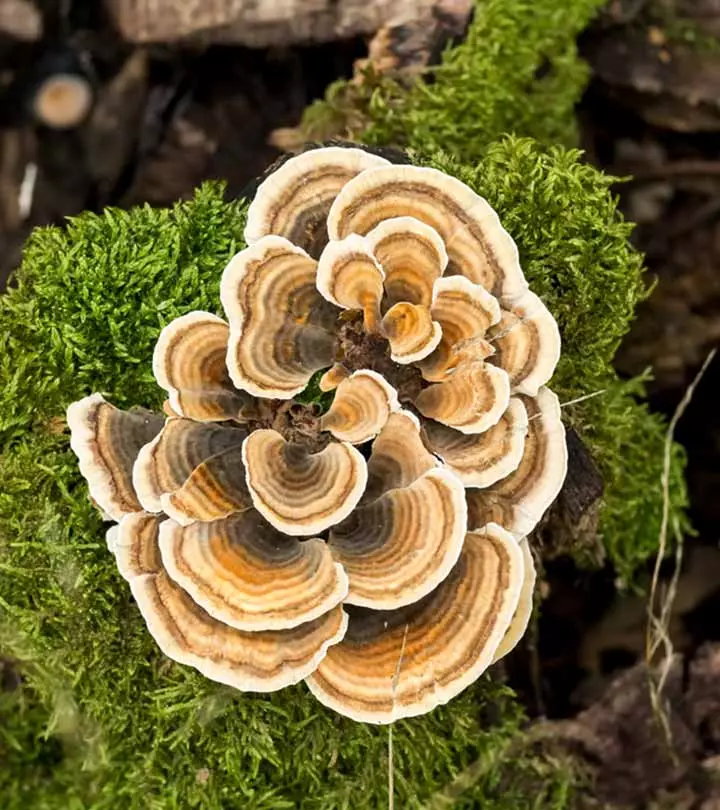
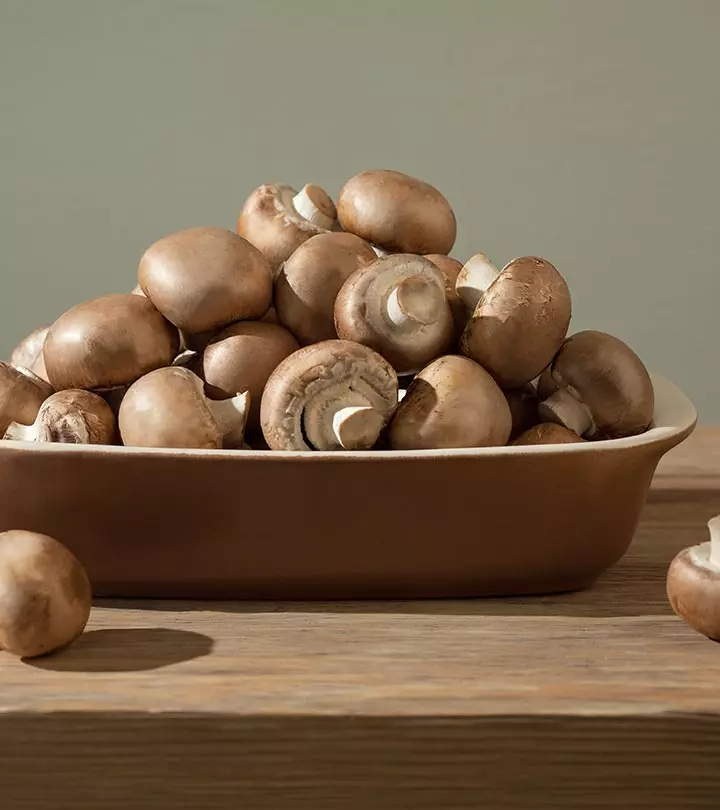
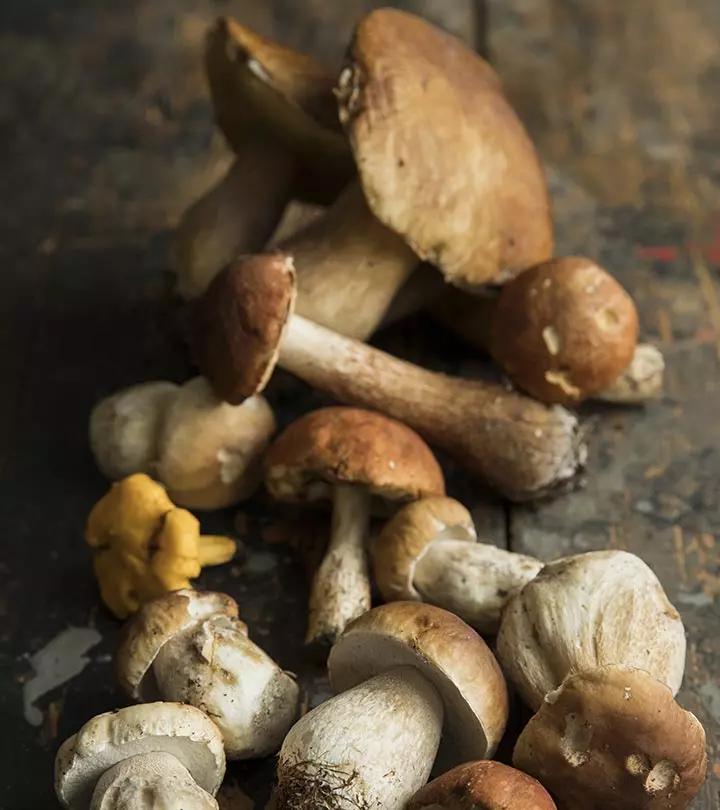
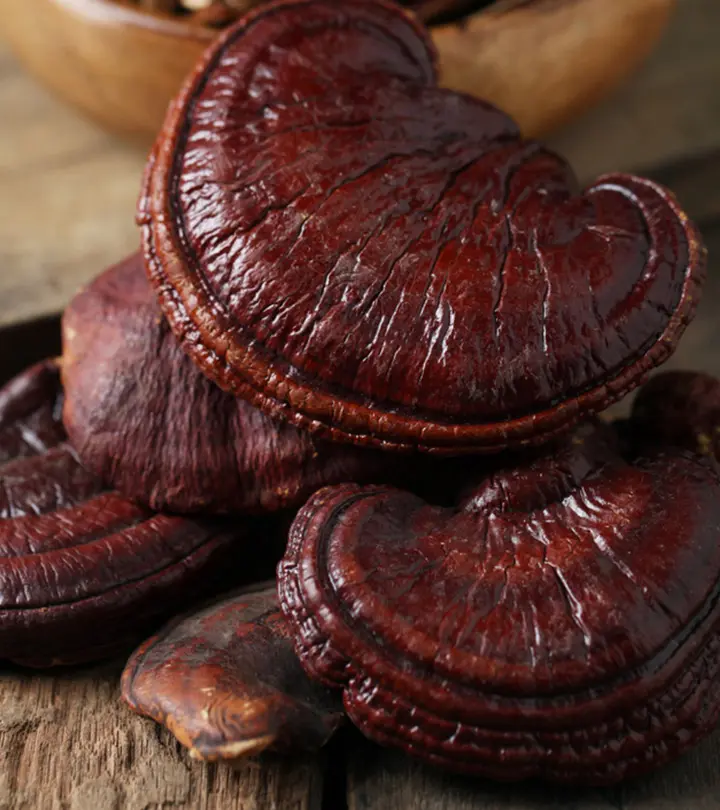





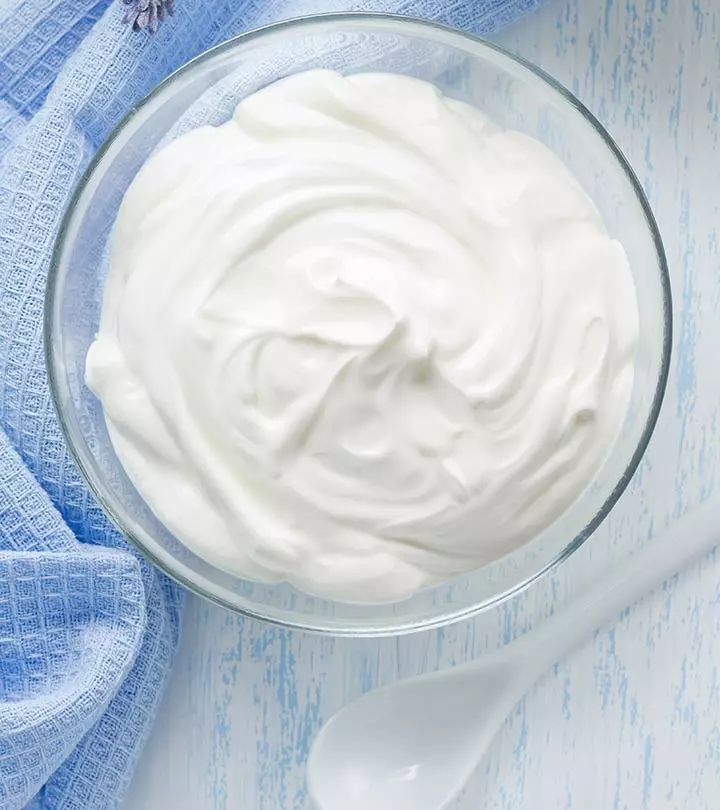





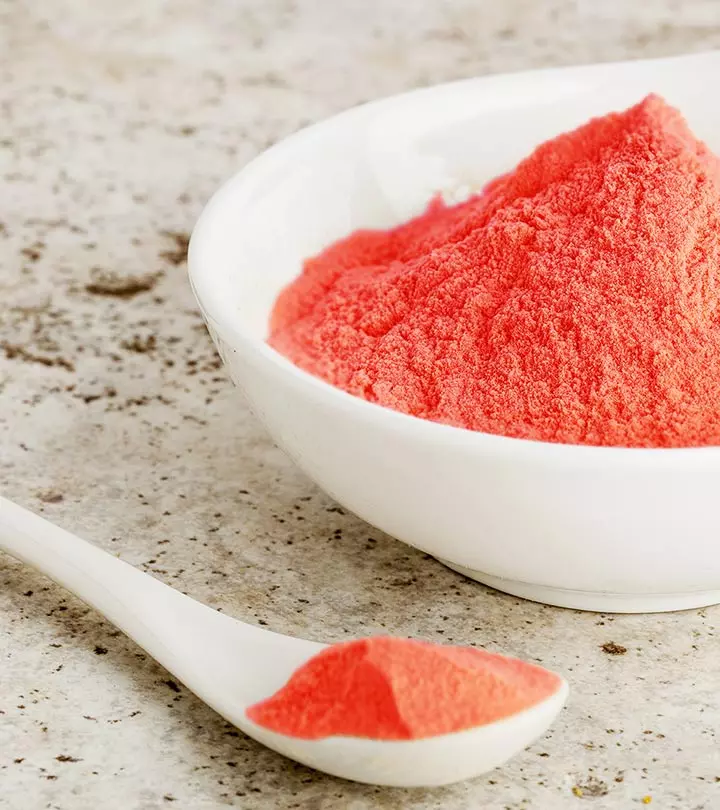
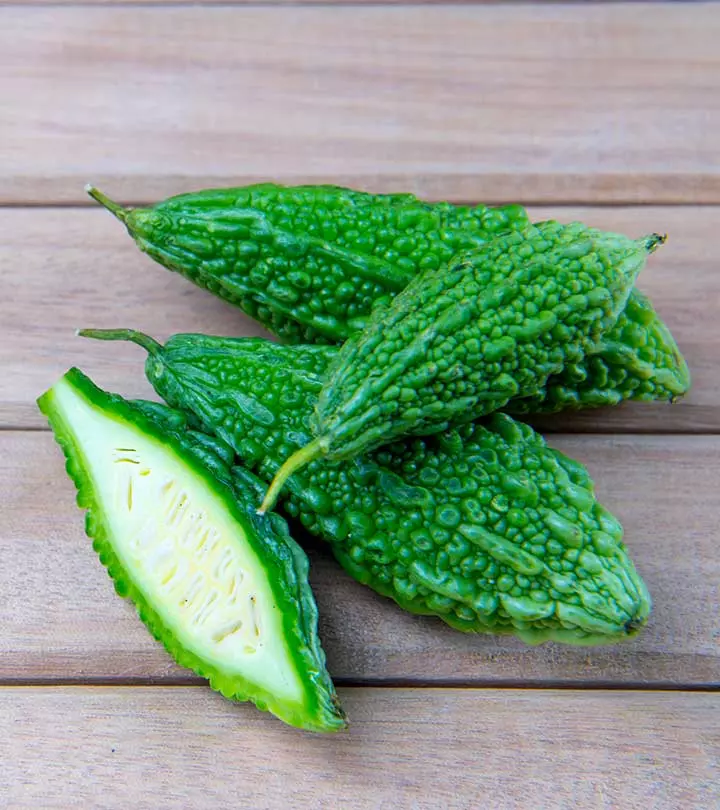

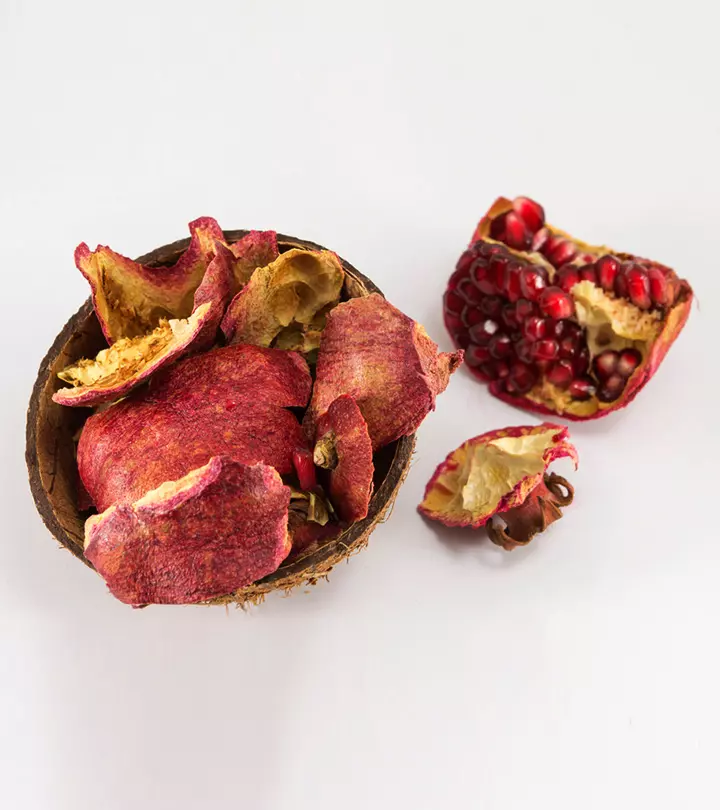


Community Experiences
Join the conversation and become a part of our empowering community! Share your stories, experiences, and insights to connect with other beauty, lifestyle, and health enthusiasts.